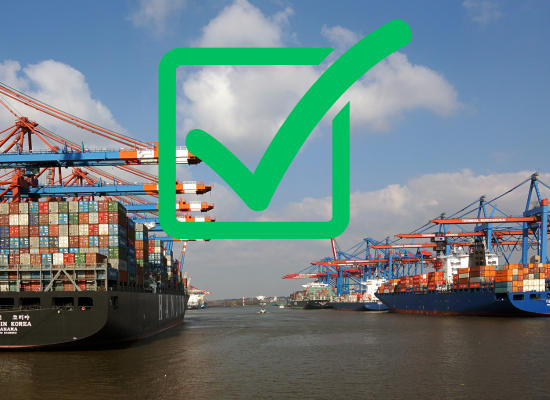20 Considerations Before Purchasing a Maritime Training Simulator

In this tech-savvy era, Ship Training Simulators are emerging as the compasses guiding the future of maritime education. They’re not just tools; they’re entire virtual worlds where every wave, wind, and whirl is a lesson in safety and skill. From recreating intense nautical scenarios to offering risk-free training grounds, these simulators are revolutionizing how mariners prepare for the unpredictable nature of the sea.
Let’s kick back and cruise through our top 20 considerations before you snag a Ship Training Simulator. Think of it as your personal checklist for techy treasure hunting in the world of maritime training. Ready? Let’s set sail on this adventure! 🚢🌊💻
* Please send feedback/suggestions to editor @ shipuniverse.com
- Your Training Objectives: First off, think about what you really need from the simulator. Are you training future captains to steer mega-ships or teaching engineers the ins and outs of an engine room? Nailing down your training goals will help you pick the right simulator.
- Tech Specs: It’s all about the tech! Does the simulator offer cutting-edge features like virtual reality or realistic physics? You’ll want a simulator that’s as up-to-date as possible to give trainees a truly immersive experience.
- Customization and Scalability: Can the simulator grow with your needs? Check if it allows adding new scenarios or environments. The more customizable and scalable it is, the better it can adapt to your changing training requirements.
- Budget and ROI: Let’s talk money. Simulators can be a big investment, so you’ll want to balance the cost against the potential return on investment (ROI). Think long-term benefits like improved safety records and more efficient crew training.
- User-friendliness: You don’t need a PhD to operate these simulators (hopefully!). Make sure it’s user-friendly. If it’s too complex, you’ll spend more time scratching your head than actually training. Look for something with an intuitive interface that both trainers and trainees can easily navigate.
- Support and Maintenance: Think about what happens after the purchase. Does the company offer solid customer support? Will they help you out if something goes haywire? Regular updates and maintenance are key to keeping the simulator running smoothly, so this is super important.
- Compatibility and Integration: Check if the simulator plays well with your existing systems. Does it support the software and hardware you already have? This is super practical and often overlooked.
- Realism and Accuracy: You want this simulator to mimic real-life scenarios as closely as possible. The more realistic the training environment, the better prepared your crew will be. This includes accurate physics, true-to-life controls, and realistic visuals.
- Certifications and Standards Compliance: Make sure the simulator meets industry standards and certifications. This isn’t just about ticking boxes; it’s about ensuring the training is recognized and respected globally. It’s like having a seal of approval from the big shots in maritime training.
- Feedback from Current Users: Last but not least, do some snooping. Talk to other organizations that have used the simulators. Honest feedback from current users can give you the real scoop on performance and reliability.
- Network Connectivity and Remote Training Capabilities: In today’s connected world, check if the simulator offers options for remote training or networked operations. This could be particularly useful for distance learning or collaborative exercises between different locations.
- Custom Scenario Development: Does the simulator allow you to develop custom scenarios? This is a big plus, as it means you can tailor the training to specific environments, vessels, or situations that are relevant to your operation.
- After-Action Review Features: A simulator with comprehensive after-action review capabilities is invaluable. Look for one that allows detailed playback and analysis of training sessions, which is crucial for learning and improvement.
- Environmental Sustainability: Depending on your situation you may want to consider the environmental aspect of the simulator. Does the manufacturer have a policy for energy efficiency or use sustainable materials?
- Future Upgrade Paths: Technology evolves rapidly. It’s wise to choose a simulator with clear upgrade paths. This ensures that your investment remains relevant and effective in the long term, adapting to future advancements in simulation technology.
- Multi-Language Support: If you’re operating in a multi-lingual environment or have a diverse crew, it’s essential to check if the simulator supports multiple languages. This ensures effective training for all crew members, regardless of their native language.
- Haptic Feedback and Physical Controls: Some simulators offer physical control panels and haptic feedback for a more realistic experience. This can be crucial for tactile learning and for simulating the physical nature of maritime operations.
- Data Analytics and Performance Tracking: Look for simulators with robust data analytics and performance tracking. This feature can provide insights into trainee progress and areas needing improvement, enhancing the overall effectiveness of the training program.
- Accessibility Features: Consider the accessibility of the simulator, especially if you anticipate training individuals with disabilities. Features like adjustable control panels, screen readers, or alternative input methods can make the simulator more inclusive.
- Reputation and Industry Standing of the Vendor: Finally, research the reputation and standing of the vendor in the maritime industry. A vendor with a strong track record and good industry reputation is more likely to offer a reliable, high-quality product.
So there you have it, the full top-20 checklist. Picking a ship training simulator is a bit like choosing a new car – you gotta consider everything from performance and features to maintenance and reliability. Happy simulating! 🚢💻🌊
Click here to find your Ideal Ship Training Simulator

Do you have a Maritime Product or Service that may be of interest to Shipowners? Tell us about it here!
Do you have feedback or insights? Please reach out to editor @ shipuniverse.com



